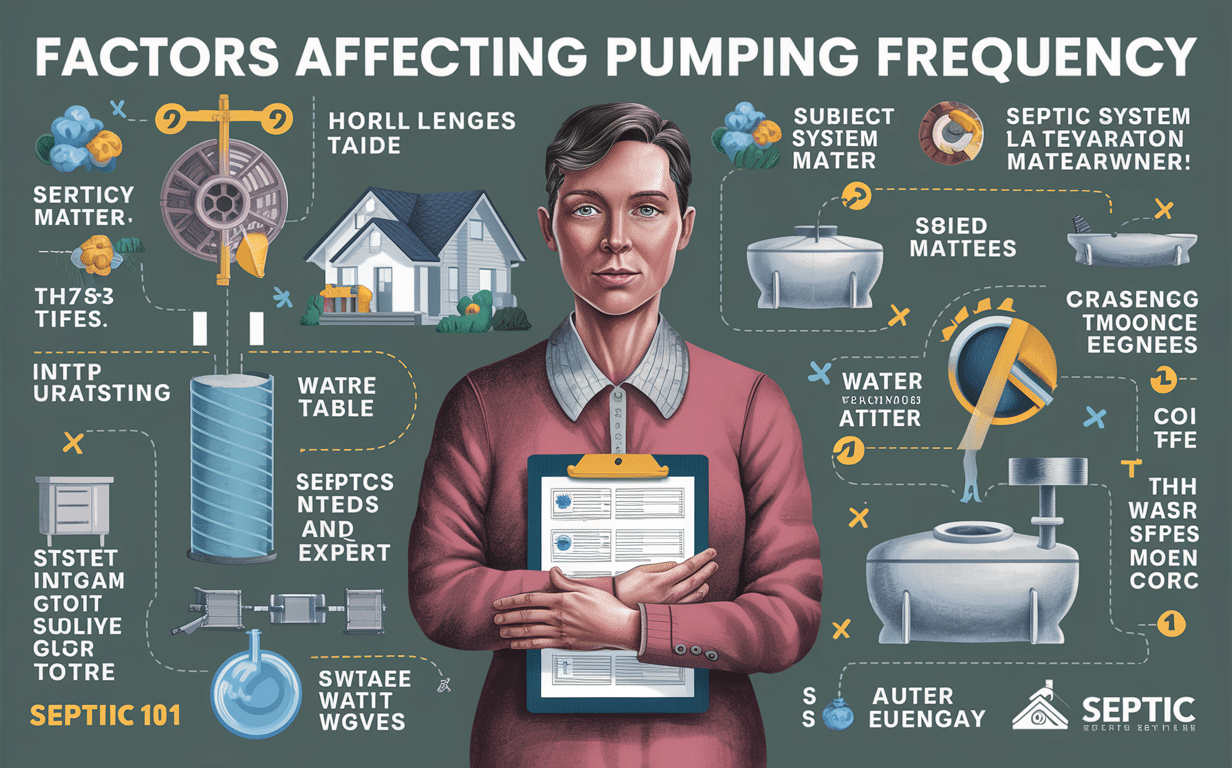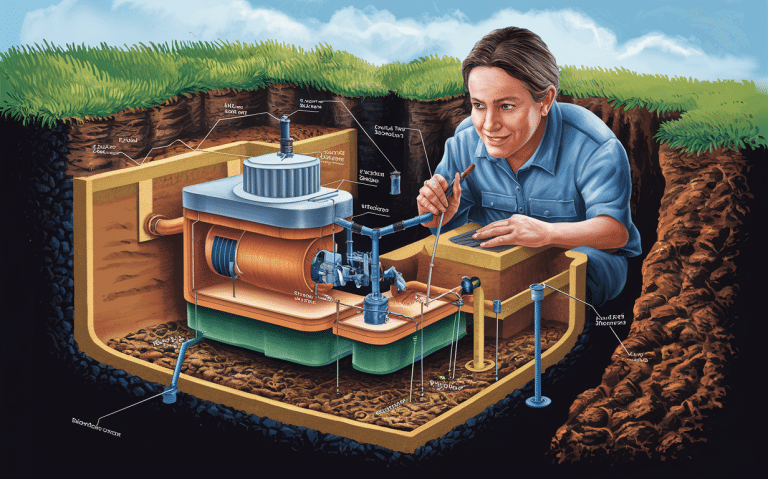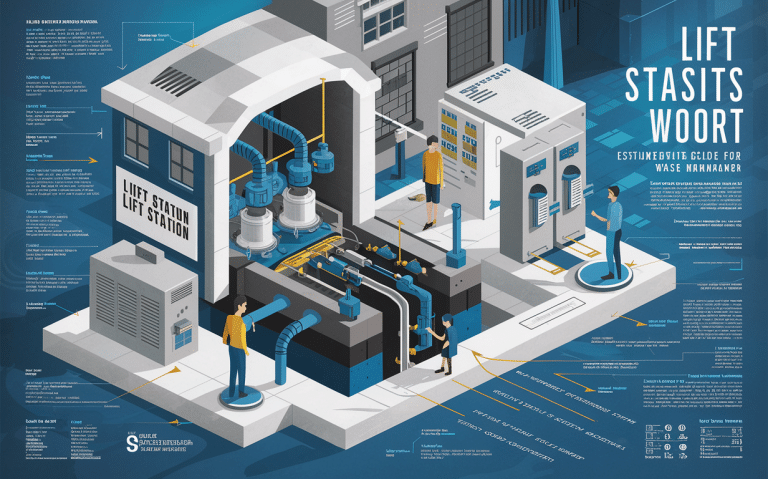Factors Affecting Pumping Frequency: Septic 101
Factors Affecting Pumping Frequency include household size, tank capacity, and waste volume. Learn how to maintain your septic system efficiently.
Maintaining a septic system requires understanding the factors that influence how often it should be pumped. This is essential for preventing potential failures and costly repairs. Let’s explore the key factors that dictate how frequently your septic tank needs pumping.
Key Takeaways
- Septic tank size and household size are major determinants of pumping frequency.
- Wastewater volume and solid waste accumulation directly impact the tank’s urgency for pumping.
- Environmental conditions and system health also play critical roles in maintenance schedules.
- Regular maintenance and inspections can extend the intervals between pumping.
Household Size
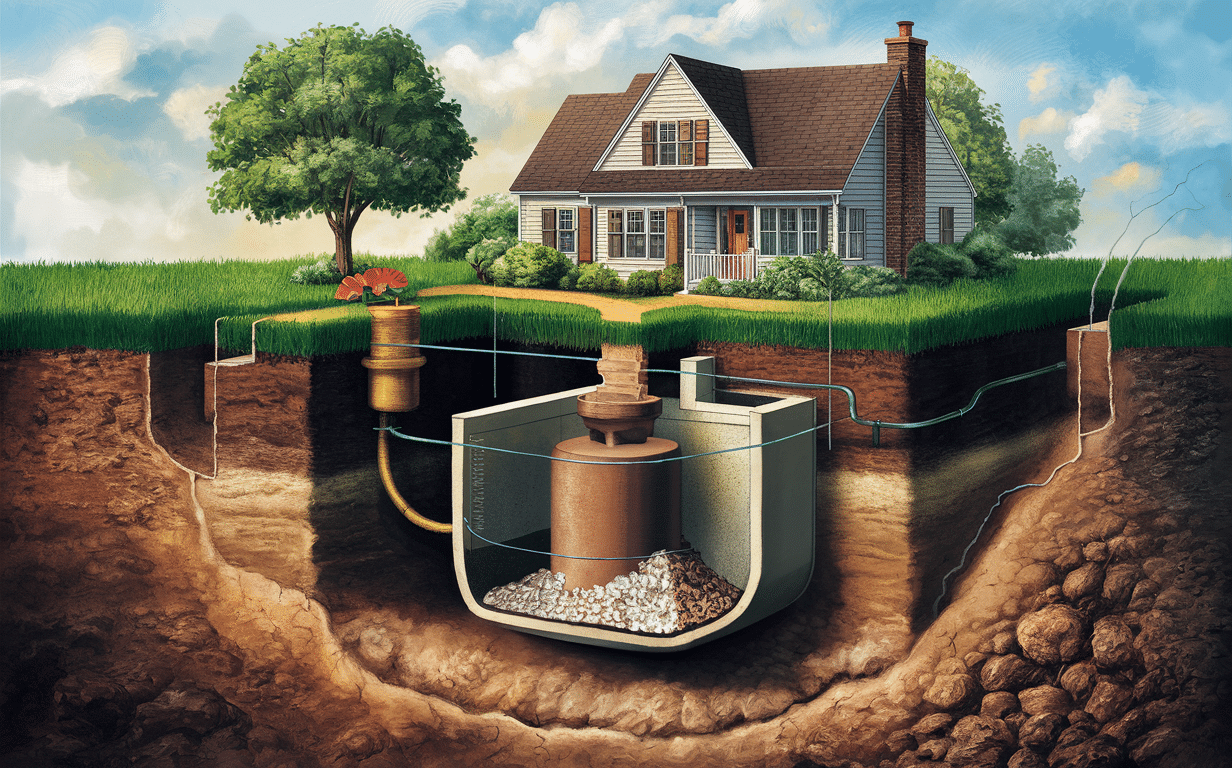
The number of people living in a home greatly influences the amount of wastewater generated. Larger households produce more waste, leading to quicker tank filling.
| Household Size vs. Pumping Frequency |
|---|
| Household Size |
| 1-2 People |
| 3-4 People |
| 5+ People |
Septic Tank Size

The capacity of the septic tank determines how much waste it can hold before requiring pumping. Larger tanks can accommodate more waste and thus need less frequent servicing.
Example:
- A 1,000-gallon tank servicing a family of four may need pumping every 3 years.
- A smaller 500-gallon tank could require annual pumping if the same family size is considered.
Wastewater Volume

Daily activities such as washing dishes, laundry, and taking showers contribute to the overall wastewater volume. Homes with higher water usage will fill the tank faster.
Strategies for Managing Wastewater Volume:
- Install low-flow toilets and showerheads.
- Fix leaks promptly to avoid unnecessary water waste.
- Use dishwashers and washing machines efficiently.
Solid Waste Accumulation
Solid waste, including kitchen scraps and non-biodegradable items, settles at the bottom of the tank, eventually reducing the tank’s capacity to hold wastewater.
Tips to Reduce Solid Waste:
- Avoid flushing sanitary products, diapers, and wipes.
- Compost kitchen scraps instead of disposing through the drain.
- Use garbage disposals sparingly.
Environmental Conditions
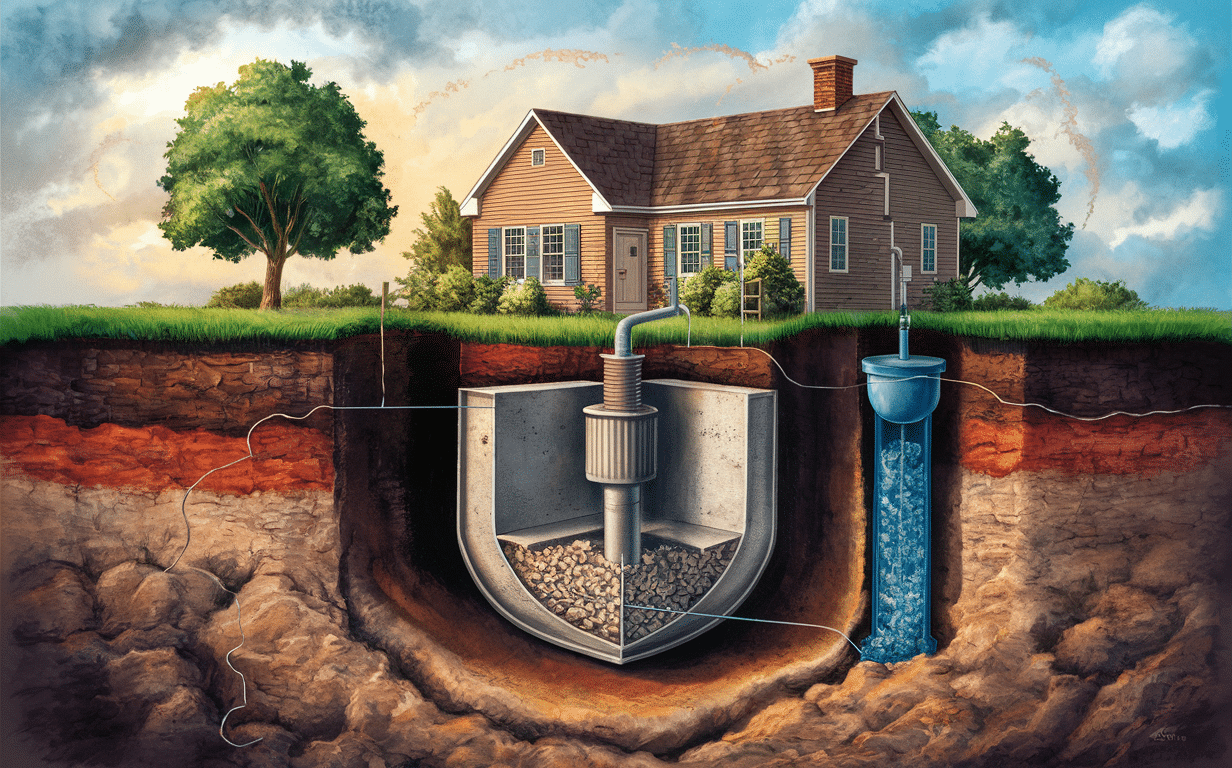
Local environmental factors such as soil type, groundwater levels, and weather conditions can affect septic system efficiency and the rate at which it fills up.
Example:
- Clayey soils may cause slower drainage, necessitating more frequent pumping.
- High groundwater levels can lead to quicker tank filling.
System Health and Maintenance
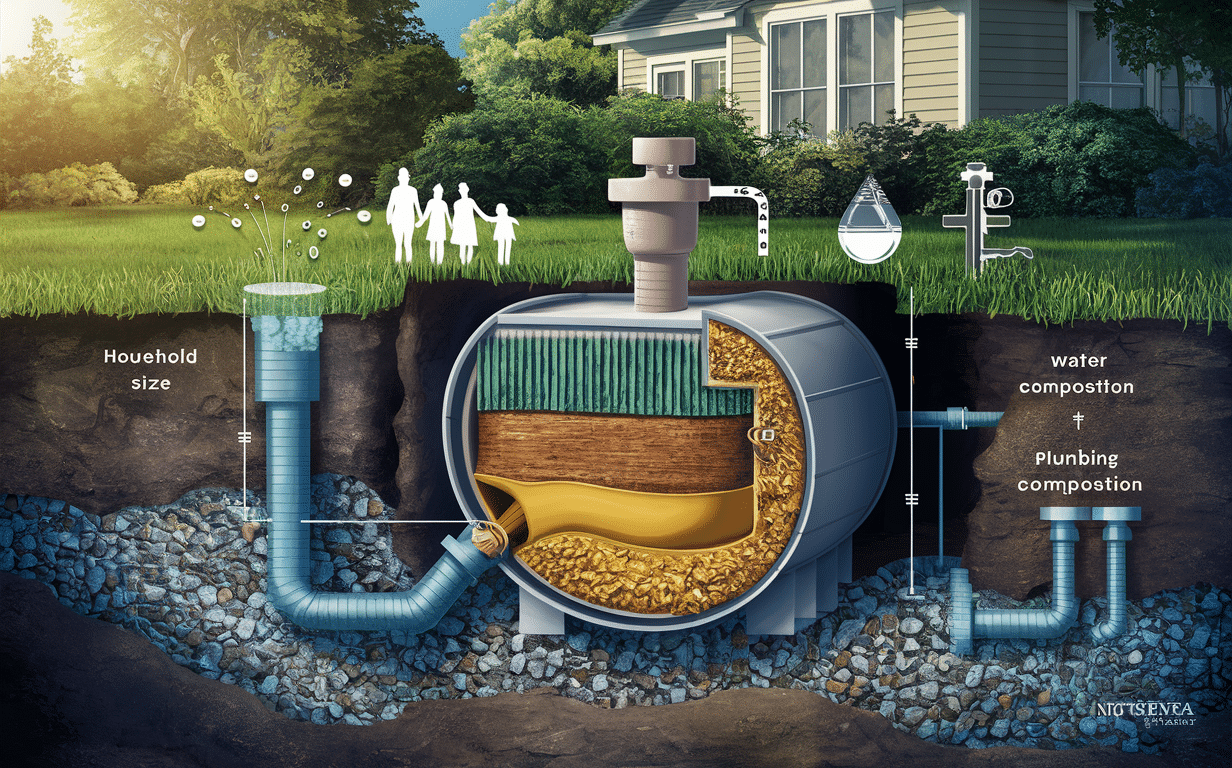
Regular inspections and maintenance are vital for keeping septic systems functional. Issues such as leaks, blockages, or mechanical failures can escalate the need for frequent pumping.
Maintenance Checklist:
- Inspect the tank and drain field annually.
- Pump the tank as recommended by professionals.
- Repair leaks and blockages immediately.
Common Septic System Issues and Solutions
| Issue | Solution |
|---|---|
| Blocked Drain Field | Professional cleaning or reinstallation |
| Leaking Tank | Seal or replace the tank |
| Mechanical Failures | Repair or replace malfunctioning parts |
Frequency of Inspections
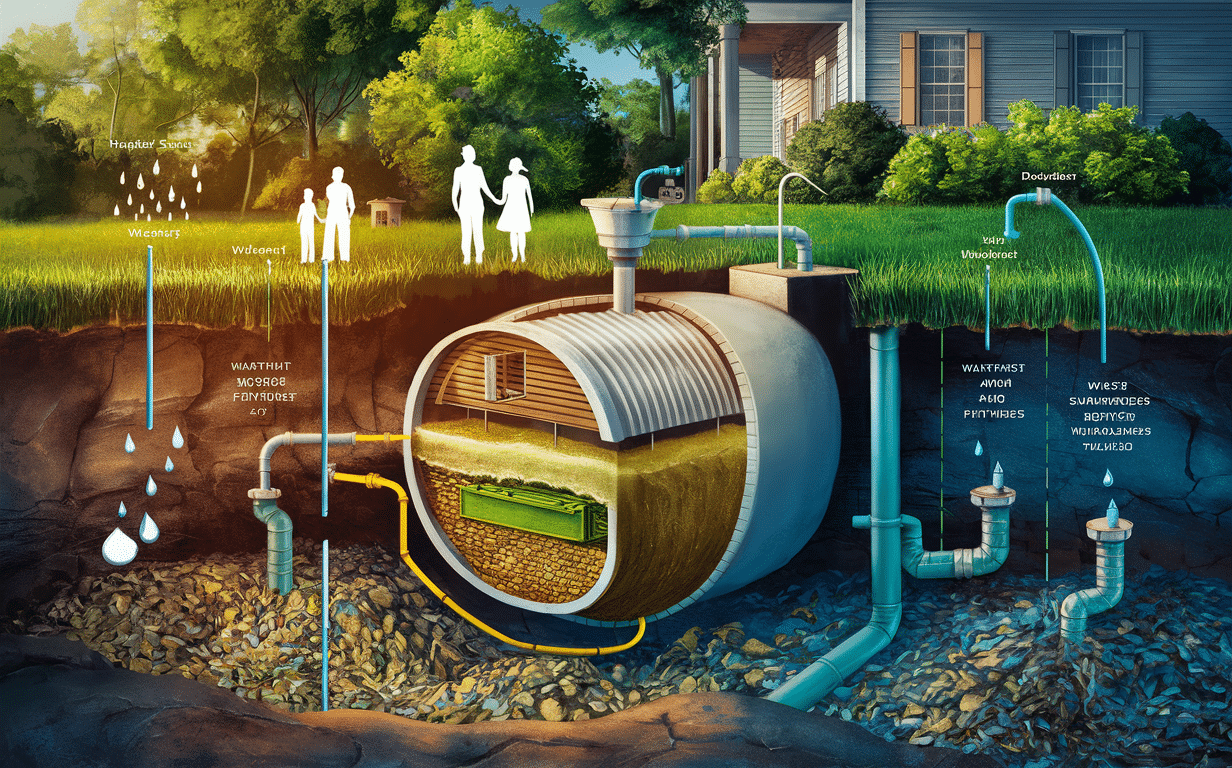
Regular inspections help in early detection of potential issues, ensuring the septic system operates efficiently and prolonging the intervals between pumpings.
List of Inspection Benefits:
- Early problem detection: Regular septic system inspections allow for the early identification of potential issues, such as clogs, leaks, or system failures. By catching problems early, homeowners can take proactive measures to address them before they escalate into more significant and costly repairs.
- Prevention of costly repairs: Through routine maintenance and timely addressing of any identified issues, septic system inspections help prevent the need for expensive repairs down the line. Neglecting septic system maintenance can lead to costly problems, such as sewage backups, soil contamination, or even complete system failure, which can be financially burdensome to resolve.
- Extension of septic system lifespan: Proper care and maintenance through regular inspections can significantly extend the lifespan of a septic system. By ensuring that the system is functioning correctly and addressing any problems promptly, homeowners can maximize the longevity of their septic system, potentially saving thousands of dollars in replacement costs.
- Assurance of system compliance with local regulations: Many municipalities have specific regulations and requirements for septic system maintenance and operation. Regular inspections help ensure that your septic system is compliant with these regulations, avoiding potential fines or legal issues that could arise from non-compliance.
- Environmental protection: A well-maintained septic system helps prevent the release of untreated sewage into the environment, which can contaminate groundwater, surface water, and soil. Regular inspections and maintenance contribute to protecting the natural environment and public health.
- Peace of mind: By having regular septic system inspections, homeowners can have peace of mind knowing that their system is functioning properly and potential issues are being identified and addressed promptly. This can help prevent unexpected and unpleasant surprises, such as sewage backups or system failures.
System Usage Patterns
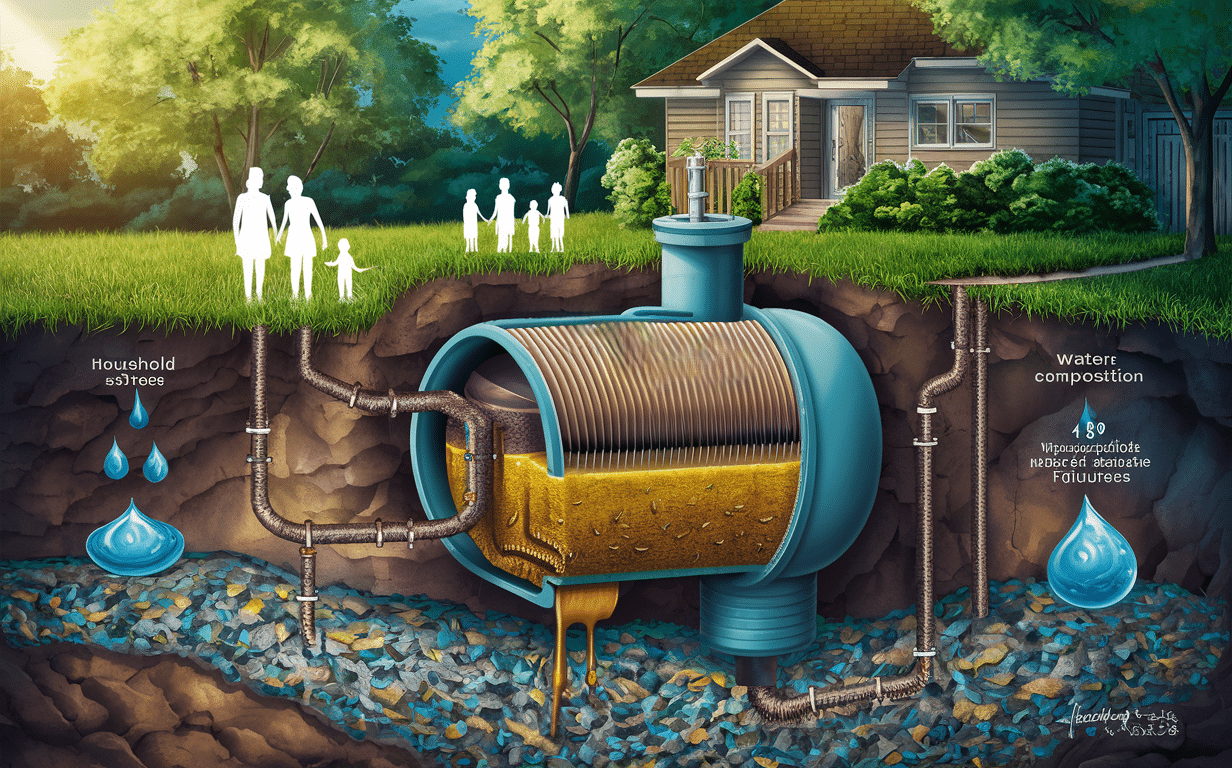
The frequency and manner in which the system is used can influence its maintenance schedule. For instance, homes used seasonally may require different pumping schedules compared to full-time residences.
Example:
- Vacation homes may only need pumping every 5-7 years due to limited use.
- Full-time residences typically require more frequent attention.
Professional Recommendations
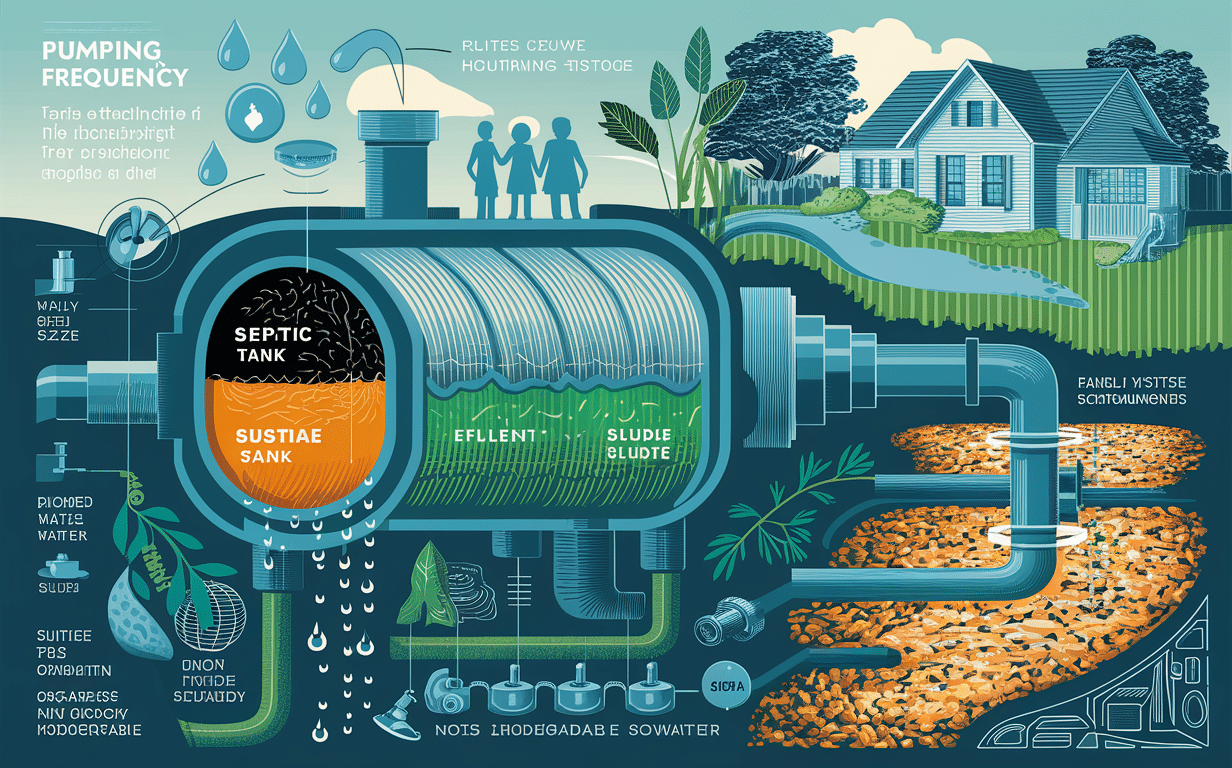
Consulting with septic professionals to assess your specific system needs can provide a tailored pumping schedule based on real-life data and system performance.
Benefits of Professional Consultation:
- Accurate assessment of system condition
- Customized maintenance plans
- Expert advice on extending system longevity
Experience the United Sewer & Drain Difference
At United Sewer & Septic, we understand the intricacies of maintaining a healthy septic system. With over 30 years of experience, we provide expert guidance and services to ensure your septic and sewer systems operate smoothly. Whether it’s septic tank pumping, system inspections, or sewer repairs, our licensed and insured team is here to help.
According to a study published in the Journal of Hydrologic Engineering, the pumping frequency of a wastewater lift station can be influenced by several factors, including:
- inflow rate
- head
- power consumption
- pump type
- The study, which was conducted on a full-scale wastewater lift station, found that:
- Inflow rate: The pumping frequency increased as the inflow rate increased.
- Head: The pumping frequency decreased as the head increased.
- Power consumption: The pumping frequency was affected by power consumption, with higher power consumption leading to more frequent pumping.
- Pump type: The type of pump used also influenced pumping frequency, with certain types requiring more frequent pumping than others.
Schedule Your Service
Don’t wait for problems to arise. Schedule your service today and maintain peace of mind knowing your septic system is in expert hands. Contact us at (888) 845-2564 or visit our website to request an estimate.
Conclusion: Factors Affecting Pumping Frequency
Understanding the factors that affect septic pumping frequency helps homeowners maintain their systems effectively, preventing costly malfunctions and ensuring environmental safety.
By considering household size, tank capacity, wastewater volume, solid waste accumulation, environmental conditions, and regular maintenance, you can determine the optimal pumping schedule for your septic system.
Regular professional inspections and tailored advice from experts like United Sewer & Septic further enhance the longevity and efficiency of your septic system.
By staying proactive and informed, you can keep your septic system running smoothly for years to come. Get a FREE estimate with us now!

